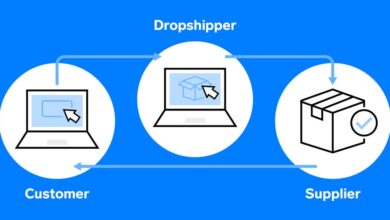Comparing LMS and CMS; which one is better for you?

In modern times, businesses have been using a variety of tools to make their day-to-day operations easier and more efficient. Among such tools, content management systems (CMS) and learning management systems (LMS) are pretty popular and pretty important to any business in any industry. Now, comparing these two kinds of systems, it can be pretty difficult to decide which one among these two fits all their requirements for a new business that is just starting.
The most advisable way however remains an integration between the systems. LMSs like talent LMS offer compatibility with CMSs and can be easily integrated into smoother and more seamless work processes.
Here in this article, we will compare the functionalities of content management systems and learning management systems to help you understand what is the absolute best for you!
What is an LMS and how does it work?
In business and academic settings, learning management systems are platforms that have the main function of distributing online learning resources to learners and system users. An LMS allows system administrators to monitor, track, and evaluate the learner’s involvement and progress in addition to delivering training information to users.
Most learning management systems enable instructors, instructors, or administration officials to upload virtual training content, arrange courses, and assign them to learners (based on the requirements of the business in question). Teachers can then review or evaluate work, reward or verify completion, and monitor participation.
So, learning management systems are ideal for,
- Administering courses and programs at academic institutions.
- Ensure that employees complete and maintain their health and safety training, as well as any other necessary training.
- guiding students through a variety of learning paths
Depending on the goals of the student/trainee and the organization, learning paths might be broad groups based on every learner’s function or a personalized pathway for an individual student.
The management capabilities of LMSs may also be used to handle offline practical learning, such as scheduling and tracking seminar attendance.
What is a CMS and how does it work?
A content management system (CMS) is a foundation for storing and displaying material on a website. A content management system (CMS) that includes platforms like WordPress, keeps track of text, pictures, files, audio, and video.
The functionality provided to users varies per content management system, but most give a simple way for users who don’t have the technical knowledge to develop and maintain a website to submit, modify, and publish material.
A content management system (CMS) may (and is) used to manage any form of a website, from a blog site to massive corporate websites.
A learning CMS is a system that has been created or built to facilitate the development, administration, or distribution of online learning content across all industries and company kinds.
What exactly is the basic difference between a CMS and an LMS?
The hints are in the titles since LMS stands for learning management system and CMS stands for the content management system. Learning management systems (LMS) are platforms that have been specially built to host, administer, and provide e-learning, whereas a content management system (CMS) is developed for all types of online material.
Also Read: A Complete Guide To Business Expense Management
Which one is better for your services?
It will eventually be up to you to decide which system of these two is the ideal one for your business. Both choices are cost-effective ways to get your information in front of the individuals who need to view it.
So maybe the main goal of your platform will be the determining factor. A content management system (CMS) is suitable for a website, blog, portfolio, and other types of material. However, if your platform’s primary purpose is to deliver e-learning and online training, an LMS’s specialized capability is probably going to be more useful in the long run, especially if the quantity of courses or learners is expected to expand over time.
Conclusion:
Both CMS and LMS systems are important software when it comes to work, related to the day-to-day operations of your organization. Both of them work wonders in their ways and the sole decision becomes yours to choose one. However, it is more advisable that rather than choosing one of the two systems or using them both separately as island software, you can get more benefits if you opt for a CMS and LMS integration that will bring the best of both worlds to you.





